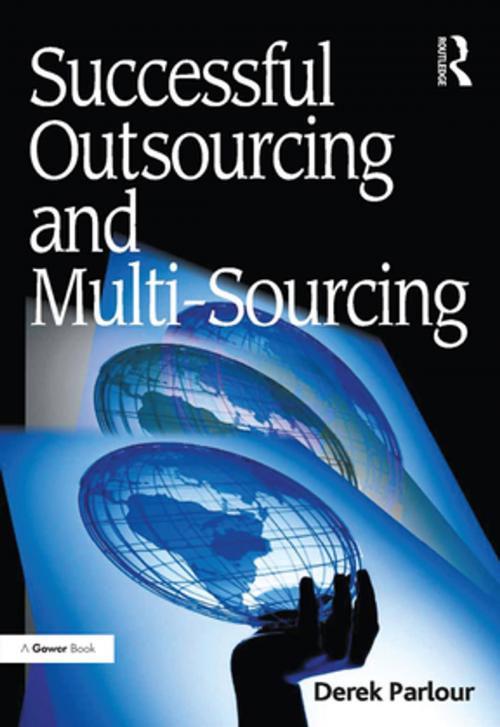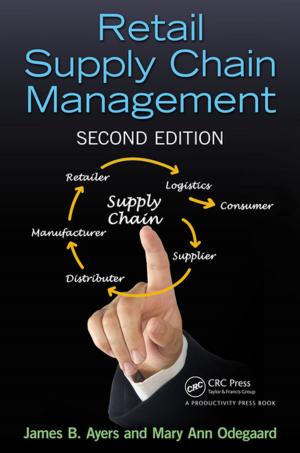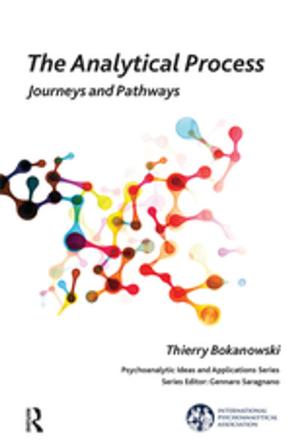Successful Outsourcing and Multi-Sourcing
Business & Finance, Industries & Professions, Purchasing & Buying, Management & Leadership, Planning & Forecasting| Author: | Derek Parlour | ISBN: | 9781317048602 |
| Publisher: | Taylor and Francis | Publication: | April 1, 2016 |
| Imprint: | Routledge | Language: | English |
| Author: | Derek Parlour |
| ISBN: | 9781317048602 |
| Publisher: | Taylor and Francis |
| Publication: | April 1, 2016 |
| Imprint: | Routledge |
| Language: | English |
There are books on outsourcing, but most are by academics or consultants. Few address multi-sourcing. The author of Successful Outsourcing and Multi-Sourcing, is a practitioner who headed an operation that handles over 500 million customer contacts a year with less than 30 staff, through both outsourcing and multi-sourcing. Multi-sourcing occurs where each individual function is contracted directly by the client rather than using a large system integrator or prime contractor. This approach lowers costs, reduces reliance on suppliers, speeds up change and generates a greater degree of innovation. The downside is it places much more of the risk on the client and needs specialist skills to run effectively. As well as a focus on multi-sourcing, the book addresses the question of why a business should outsource in the first place and how decisions to do this should be strategic, rather than it being something that happens by accident. Chapters then illuminate the benefits of single-sourcing; the benefits of multi-sourcing; how best to decide what outsourcing model to choose; how to transition to outsourcing; and what steps to take to maximise benefit and minimise risk. Downsides are clearly spelled out and alternatives to outsourcing are examined, including partial outsourcing and insourcing. This book serves as a valuable source of practical guidance for organisations looking at outsourcing strategy, outsourcing professionals, and those teaching or studying business topics.
There are books on outsourcing, but most are by academics or consultants. Few address multi-sourcing. The author of Successful Outsourcing and Multi-Sourcing, is a practitioner who headed an operation that handles over 500 million customer contacts a year with less than 30 staff, through both outsourcing and multi-sourcing. Multi-sourcing occurs where each individual function is contracted directly by the client rather than using a large system integrator or prime contractor. This approach lowers costs, reduces reliance on suppliers, speeds up change and generates a greater degree of innovation. The downside is it places much more of the risk on the client and needs specialist skills to run effectively. As well as a focus on multi-sourcing, the book addresses the question of why a business should outsource in the first place and how decisions to do this should be strategic, rather than it being something that happens by accident. Chapters then illuminate the benefits of single-sourcing; the benefits of multi-sourcing; how best to decide what outsourcing model to choose; how to transition to outsourcing; and what steps to take to maximise benefit and minimise risk. Downsides are clearly spelled out and alternatives to outsourcing are examined, including partial outsourcing and insourcing. This book serves as a valuable source of practical guidance for organisations looking at outsourcing strategy, outsourcing professionals, and those teaching or studying business topics.















